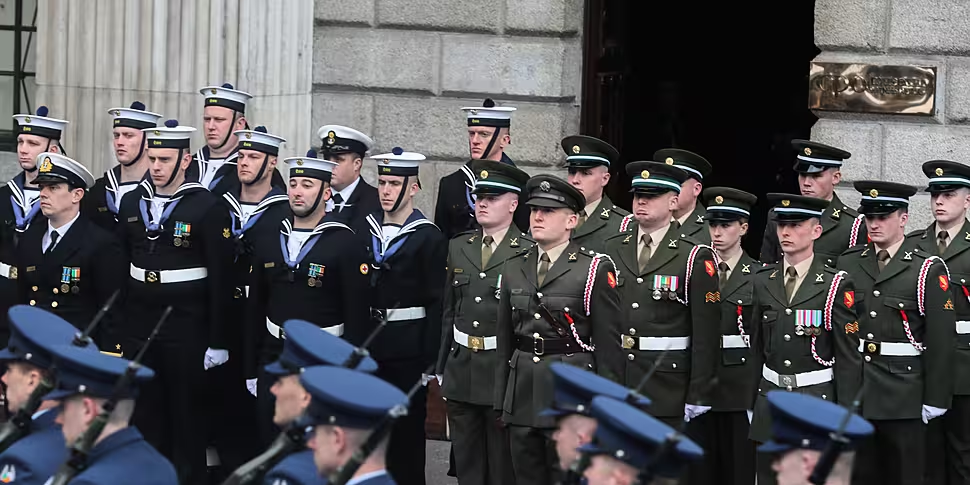There is 'no evidence' the Triple Lock has prevented peacekeeping missions, the Irish Anti-War Movement has said.
Yesterday, Tánaiste and Minister for Defence Micheál Martin has announced the Government will bring forward legislation to scrap the Triple Lock.
Currently, no more than 12 members of the Defence Forces can be deployed overseas without permission from three bodies – Government, Dáil Éireann and the United Nations.
The five permanent members of the UN Security Council, America, China, Russia, Britain and France all have a veto on UN resolutions and the Government argues this gives them an effective veto on the deployment of Irish troops.
Speaking to Newstalk Breakfast, Irish Anti-War Movement co-chair Mark Price said it was a price worth paying.
“This is called the international order - whether we like it or not, these are the permanent members on the Security Council,” he said.
“Whether you like it or not, the UN Charter remains the only document that anyone can point to and that’s all we have.”
Since 1978, over 30,000 Irish troops have served as peacekeepers in Lebanon as part of the United Nations Interim Force in Lebanon (UNIFIL).
Opponents of the Triple Lock have raised concerns Russia or China could veto other peacekeeping missions.
"This Triple Lock system hands the five permanent members of the Security Council a veto over our national sovereign decision to deploy troops to peacekeeping missions as we see fit," Minister Martin told the Dáil yesterday.
Mr Price said neither country has done so in recent years – pointing out that Russia recently allowed the continuation of a mission in Bosnia.
“The principle argument [against the Triple Lock] is that it is preventing peacekeeping missions and the evidence for this is there hasn’t been a new peacekeeping mission since 2014," he said.
“This is a red herring because there hasn’t been one vetoed either.”
European defence
The Irish Anti-War Movement is also concerned about Ireland’s involvement in a number of European defence projects.
In 2017, Ireland joined the EU’s Permanent Structured Cooperation (PESCO) and has since taken part in four projects and obtained observer status in a further 19.
Minister Martin has said PESCO simply allows EU member states to “come together in different project groups to develop and make available additional capabilities” but Mr Price believes they are not harmless.
“The point about these European missions is that… the European defence industry has been running the show - especially since the British left,” he said.
“Since 2016, there has been a great push to increase European military capability and this is nothing to do with international law.”
Despite plans to reform the Triple Lock, Minister Martin has said NATO membership or giving up on Irish neutrality are “simply not on the agenda”.
You can listen back here:
Main image: Defence Forces personnel outside the GPO on O'Connell Street, Dublin. Photographer: Leah Farrell / RollingNews.ie









